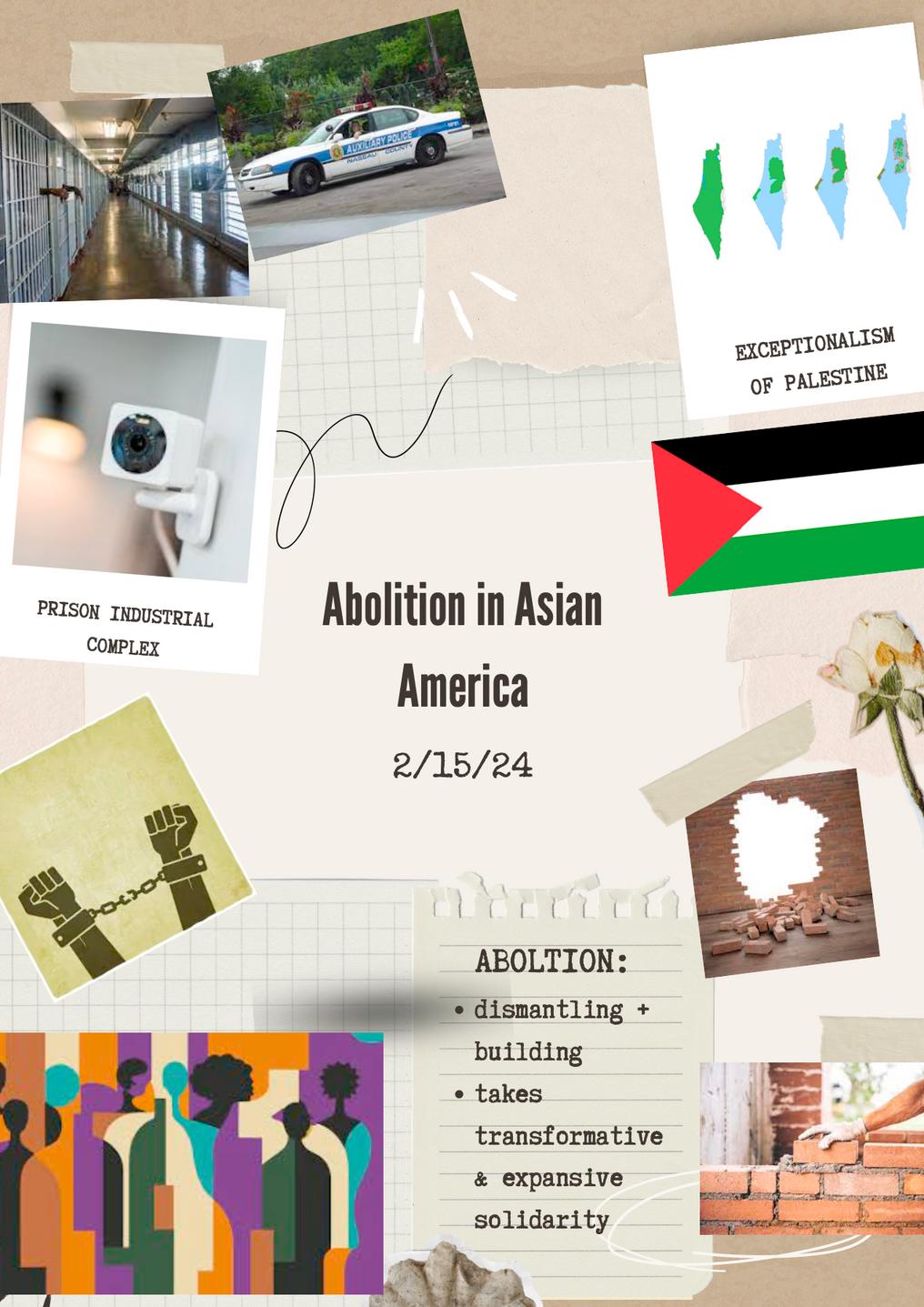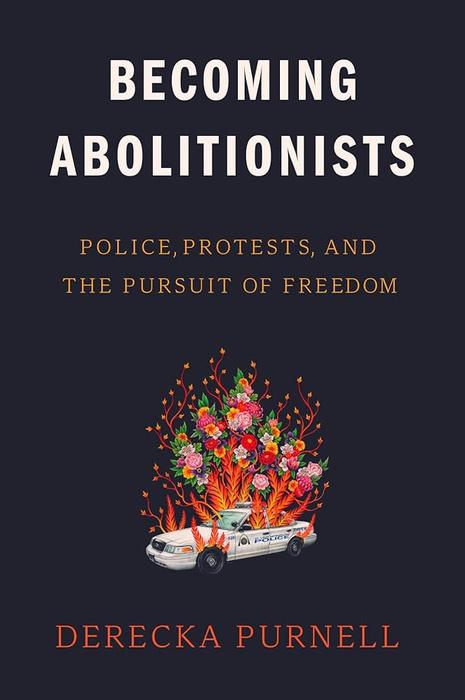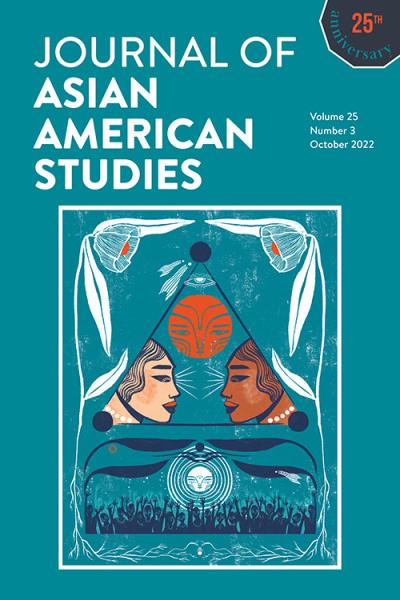

CREATED BY
Guest speakers
Students
With support from
Katherine Nasol
Samia Shoman
Introduction to Asian American Studies
Asian American Studies
Asian American Activities Center
edited by Thaomi Michelle Dinh
WHAT DOES ABOLITION HAVE TO DO WITH ASIAN AMERICA?
W H A T I S A B O L I T I O N ?

“Abolition is a political vision with the goal of eliminating imprisonment, policing, and surveillance and creating lasting alternatives to punishment and imprisonment.”
Critical Resistance
“Dismantling institutions and systems like prisons, jails, detention centers, psychiatric institutions, policing, immigration restriction, state surveillance, and many others...different means to support collective thriving and more effective ways to address harms.”
Abolition Journal
Abolition relates to not only institutions and processes, but how we are in relationship with others. How do we police, punish, and criminalize others and ourselves in our everyday lives?
Abolition relates to not only institutions and processes, but how we are in relationship with others.
How do we police, punish, and criminalize others and ourselves in our everyday lives?
W H A T I S T H E P R I S O N I
Mass Media & Culture: Perpetuating stereotypes of people of color, poor people, queer people, immigrants, young people as criminals
Profits: Private companies making $$$ off of prisons, criminalization, and policing.
Policies: Policies & politicians to increase and maintain power.
Punishing and Eliminating Dissent: Targeting and imprisoning communities who demand power.


There were over 3000 police killings since 2020, including more police killings in 2022 than any other year in the past decade.

In 2021, over 400 abortion restriction laws were introduced into state legislatures -- designed to force clinic closures and penalize and criminalize abortion seekers, providers and support people.

Two thirds of survivors and service providers said police use force against survivors sometimes or often during DV calls, particularly against Black survivors.
Policing & prisons historically and presently harm many of our communities, and lead to what scholar activist,
Ruth Wilson Gilmore, calls “premature death.”


people want abolition? Why do
Those at the margins of our communities— queer, poor, immigrant, monolingual are highly policed, imprisoned, and militarized.



Southeast Asian communities are 3 to 4 times more likely to be deported for past convictions when compared with other immigrant communities. (Asian Prisoner Support Committee)
According to a survey led by Asian Prisoner Support Committee, 90% of Native Hawaiian & Pacific Islander respondents are serving a life sentence. (Asian Prisoner Support Committee)
“Pacific Islanders suffered higher rates [of police killings], on par with Native and Black Americans.” (Schwartz and Jahn)
“The U.S. military has a history of engaging in sexual violence in various conflict zones, particularly in the Pacific and Asia both with rape as a weapon of war, as well as the state-sanctioned practice of “rest and recuperation.” (NAPIESV)
ABOLITION AS REORIENTATION
The idea that prisons and the whole of the criminal justice system are a catch-all for an array of problems that many are victims of an effect of the subtle and unsubtle expressions of racism and white supremacy that still somehow carry on that really opened up abolition for me. Thatʼs what made so much sense.
While it is important to envision the kind of worlds that we want to build afterwards, not knowing the full and complete answer of what that will look like shouldn’t be a deterrent to abolition now.
Because we, as Asian Americans, are affected by the model minority to some extent, I had never imagined or considered Asians and Asian Americans in their engagement with the prison-industrial complex. It took me a second to wrap my head around the idea that the AsianAmerican experience isn’t excluded from the prison-industrial complex [This teach-in] was one of the first times I was forced to really consider the positions of Asian Americans within and out of the prison-industrial complex and what abolition looks like for our communities.
A S I A N A M E R I C A N H I S T O R I E S O F
A B O L I T I O N
Native Hawaiian Resistance against US Militarization & Colonization
Yuri Kochiyama’s Activism to Free Political Prisoners
Asian Prisoner Support Committee’s Work in Ending Deportation and Detention
Muslim Abolitionist Futures to abolish the War on Terror
ABOLITION AS AN EVERYDAY PROCESS
One of the motives of the prison-industrial complex is isolation and dehumanization - by physically isolating the incarcerated from broader society, the prison-industrial complex encourages a dehumanized view of those it has incarcerated. Making space for this sort of dialogue is essential to tackling the prisonindustrial complex. This has also made me reflect on the importance of art in this process, and the ways in which art can be utilized as a means of both humanizing and facilitating this radical imagination of a world without prisons.
As both a student and an RA, I've been able to incorporate some abolitionist principles into my own roles. The residences I've been involved with have always prioritized alternatives to involving law enforcement and advocated for restorative justice in addressing community conflicts.
“Many Asian community advocates and elected officials have called for strengthened hate crime laws and policing. As they tell it, Asian people are innocent, law-abiding victims who are receiving the brunt of a crime wave and anti-China rhetoric. The reality that Asian Americans can both be harmed, harm others, and be labeled “criminal” is inconvenient to this narrative.”


“It seems Black people are expected to reassure Asian Americans that they don’t “hate” us and will work to stop people in their communities from “hating” us… while Asian Americans will reassure Black people we won’t call for more policing or criminalization of them.
While abolition is a good horizon to have, how are images of Blackness as violent or criminal perpetuated in such claims of Black-Asian solidarity as safety? How are, even in rightful challenges to more policing, Black people depicted as perpetrators of violence and racial threats to society and Asian Americans as only victims who need protection from violence or crime but never perpetrators?”
EXPANSIVE SOLIDARITY AS A MEANS TO ABOLITION
From analyses of the incarceration of Japanese Americans to the racial targeting of Filipinx folks in the US, Asian Pacific Islander American (APIA) scholars and movements opened up crucial analysis about the interlocking forces of global US imperialism and domestic US-based histories of racial targeting, profiling, and surveillance. Given that most Arab countries are in Asia and the similarities and connections across “Arab” and “Asian” experiences, the field of Arab American studies found an early home within Asian American (and Asian Pacific Islander American) studies programs and academic journals.
“
Palestine is Ethnic Studies: The Struggle for Arab American Studies in K–12 Ethnic Studies Curriculum”Lara Kiswani, Nadine Naber, Samia Shoman


AAAS renews its long commitment to centering Palestinians’ demands for an end to their occupation and the fulfillment of selfdetermination. Against deeply interconnected forms of colonial power, global imperial and arms networks, and state repression, we must learn from scholars and activists who are drawing transnational parallels and shared justice movements. We follow on-the-ground activists in interconnecting Palestine’s struggle with the long criminalization of Black and Indigenous protest in the US, the ongoing suppression of Kashmir’s anticolonial movements against Indian occupation, the forced expulsion of Armenians from Artsakh, the enforced mass starvation of Afghanistan under current US imperial policies, and too many more.
We will not waver in our commitment to anticolonial and decolonial justice in Palestine, and everywhere.
When Abolitionists Say ‘Free Them All,’ We Mean Palestine Too
 Nadine Naber
Nadine Naber
“During this profoundly terrorizing moment of Palestinian genocide, we need to acknowledge how the structures of incarceration, antimigrant violence and U.S. conquest have always gone hand in hand.”

SOLIDARITY & WORLD BUILDING
The parallels between the struggles for liberation in Palestine and the fights against deportation and incarceration in Asian American communities highlight the importance of solidarity and the need to understand our interconnected struggles.
Formalizing the different levels of solidarity that we hold will keep us accountable to the dangers of shallow support.
It takes a team, a crew, a community, composed of individuals with their own passions and valued histories, to change a status quo.












Palestine itself has been rendered morally, ethically, and politically exceptional. The impact of this exceptionalism can be seen in the United States and in Israel-Palestine, where conditions continue to worsen.

When the topic turns to Palestine, the same people who consistently advocate for freedom and justice fail to live up to their professed ideals.
Marc Lamont Hill & Mitchell PlitnickExcept for Palestine: The Limits of Progressive Politics (2022)
The Palestinian cause is not a cause for Palestinians only, but a cause for every revolutionary, wherever he is, as a cause of the exploited and oppressed masses in our era.
Ghassan Kanafani
T H E C O S T O F O R I E N T A L I S M / E X C E P T I O N A L I S M
Orientalism is a lens used by the West to understand the unfamiliar and the strange,

to make the people of the Middle East appear different and threatening.
It is often why when people think of the Middle East they have preconceived notions of what kind of people live there, what they believe, how they act, even if they have never even been there or met anyone from there.














What does an abolitionist politics look like across and beyond Asian, Native Hawaiian, and Pacific Islander communities?

What does safety mean to you?
What kind of world do we want to build?
RECOMMENDED READING










